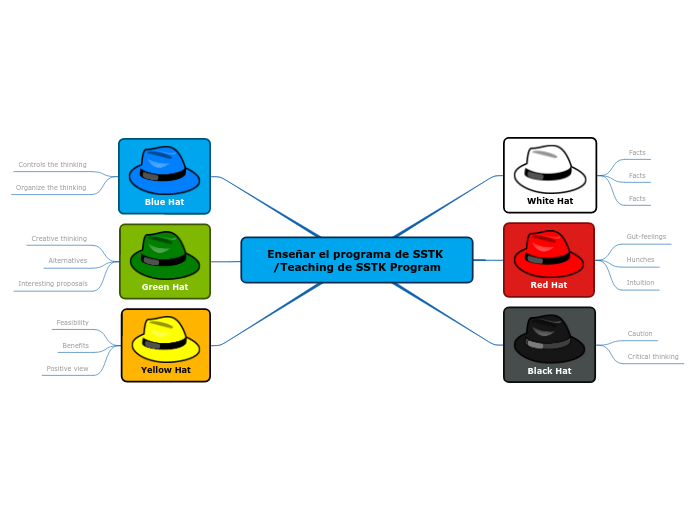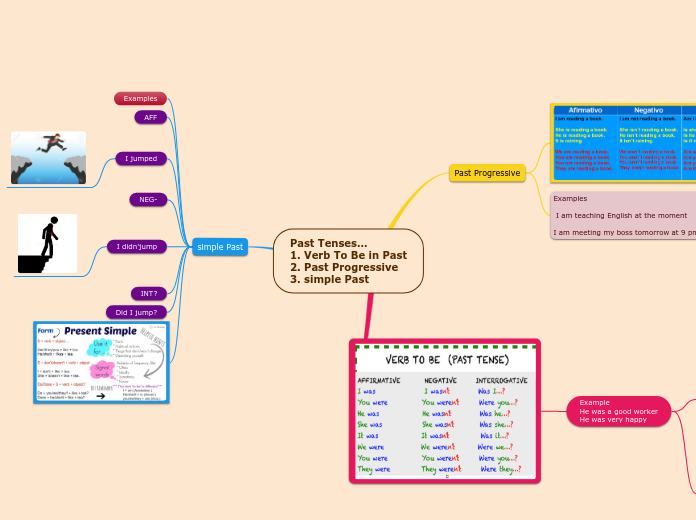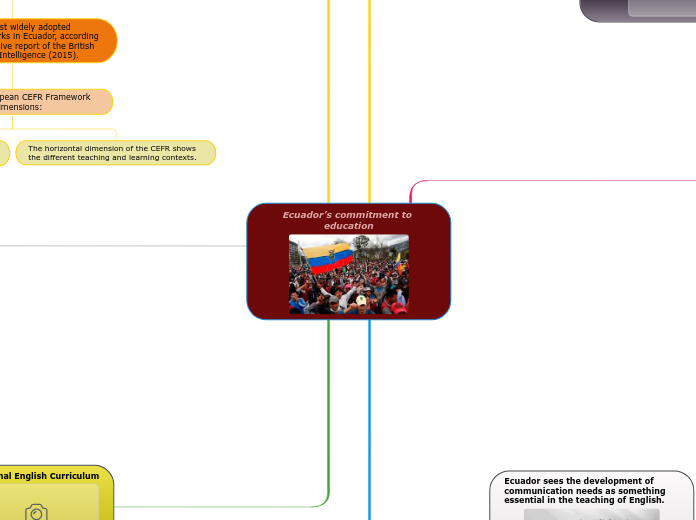Enseñar el programa de SSTK /Teaching de SSTK Program
'Six Thinking Hats' can help you to look at problems from different perspectives, but one at a time, to avoid confusion from too many angles crowding your thinking.
Yellow Hat
The Yellow Hat will help you to think positively. While you are 'wearing' this hat be optimistic, notice the benefits and the value in them.
Positive view
Benefits
Feasibility
Green Hat
The Green Hat represents creativity. Develop creative solutions to any problem with this hat. This unconstrained mindset allows you to freely test out a variety of useful creativity tools, due to its low level of criticism.
Interesting proposals
Alternatives
Creative thinking
Blue Hat
The Blue Hat thinking represents process control. When having trouble because ideas are needed, the Green Hat may come in handy since it is the one used for creativity. In case of emergencies and dealing with them, the Black Hat is required.
Organize the thinking
Controls the thinking
Black Hat
Using the Black Hat you consider the negative outcomes. Find what would not work and why. This way you highlight the weak points in a plan. Black Hat will help you to identify the flaws and risks before you embark on a course of action.
Critical thinking
Caution
Red Hat
Using the Red Hat, you will use your intuition and emotions. Also, you will consider how others might look at the problem emotionally. Try to understand the responses of people who do not fully know your reasoning.
Intuition
Hunches
Gut-feelings
White Hat
Using the white thinking hat, you center your attention around the available data. Take the information that you have, analyze it, and see what you can learn from it. Become aware of your weak points and start working on improving your knowledge.
Facts









